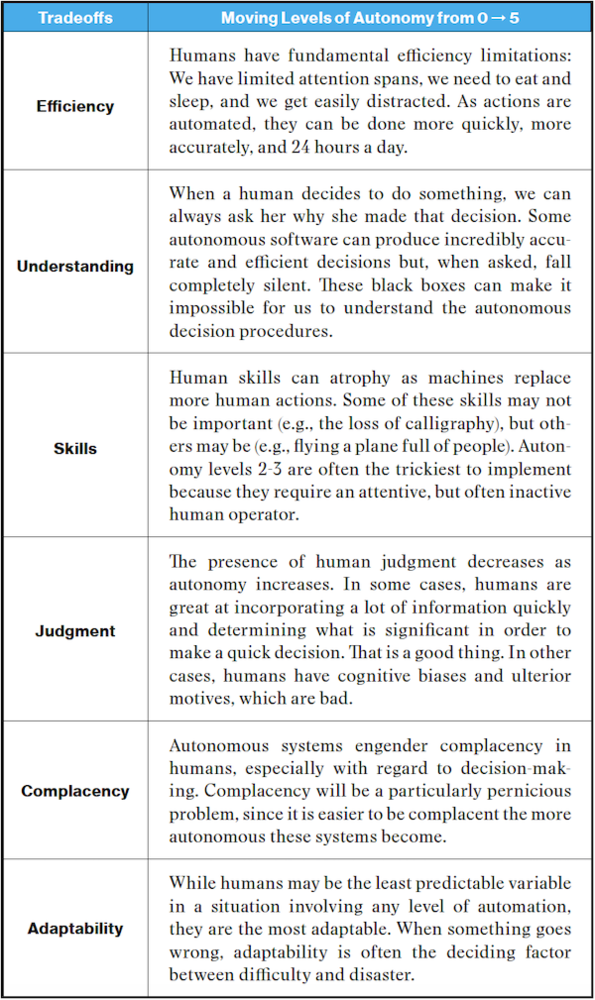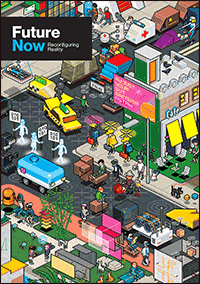Future Now
The IFTF Blog
Who's in Control?
Navigating levels of autonomy
Over the next decade, autonomous bots and machines will migrate out of a few select industries and terrains and become active participants in a wide array of social, business, and civic spheres. The introduction of these new actors will require us to sort through complex decisions regarding human machine collaboration and oversight. To make sense of the kinds of decisions and trade-offs we’ll face, we can gain inspiration from the world of autonomous vehicles where six levels of autonomy give structure to key questions around the responsibilities of the driver, the machine, and the machine’s designers.
Levels of Autonomy
Level 0: No Automation
There is no automation whatsoever. Humans perform all the activities.
Level 1: Machine Assistance
There is some action-specific assistance, but the human operator is still fully in control.
Level 2: Partial Control
There is some partial, task-specific control from machines, but humans are still in control of everything.
Level 3: Conditional Control
Functions are automated, but human oversight—and the occasional full human takeover—is necessary.
Level 4: High Automation
Everything is automated within specific use-cases and can operate seamlessly without humans.
Level 5: Full Automation
Total automation, in every circumstance, for anything a human can do (and beyond).
Tradeoffs and Questions
Each level of automation introduces new tradeoffs and questions, even when the net result is almost certainly positive. In the airline industry, for instance, the increasing sophistication of autopilot has radically reduced crashes even as it has eroded pilot skill.
As you begin developing your long-term strategies and designs, consider the following tradeoffs:

 FUTURE NOW—Reconfiguring Reality
FUTURE NOW—Reconfiguring Reality
This third volume of Future Now, IFTF's print magazine powered by our Future 50 Partnership, is a maker's guide to the Internet of Actions. Use this issue with its companion map and card game to anticipate possibilities, create opportunities, ward off challenges, and begin acting to reconfigure reality today.
About IFTF's Future 50 Partnership
Every successful strategy begins with an insight about the future and every organization needs the capacity to anticipate the future. The Future 50 is a side-by-side relationship with Institute for the Future: a partnership focused on strategic foresight on a ten-year time horizon. With 50 years of futures research in society, technology, health, the economy, and the environment, we have the perspectives, signals, and tools to make sense of the emerging future.
For More Information
For more information on IFTF's Future 50 Partnership and Tech Futures Lab, contact:
Sean Ness | sness@iftf.org | 650.233.9517



